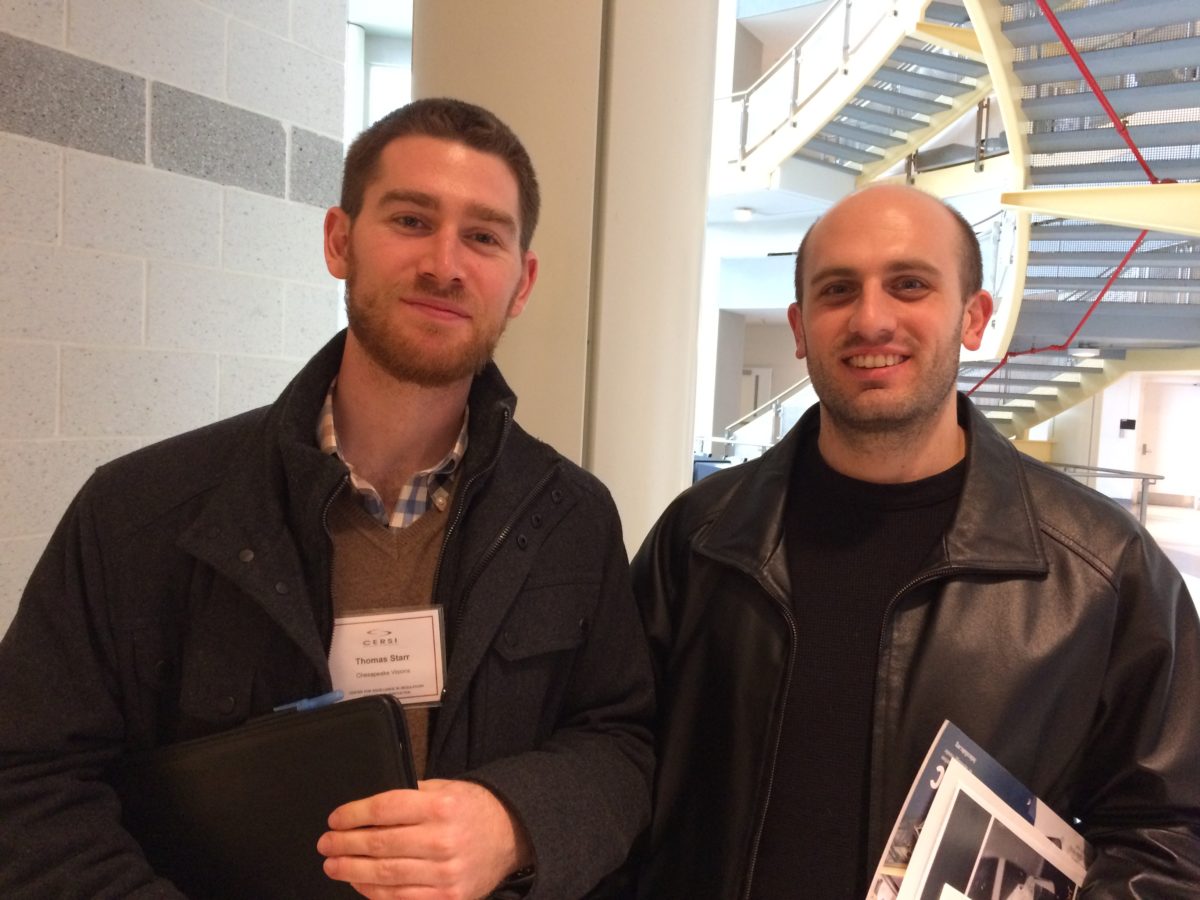With the push to encourage researchers to take steps to commercialize their discoveries, there are grants and awards and tech transfer offices and incubators and competitions and…
But receiving money doesn’t automatically mean that a successful business will appear right away. Like all startups, they need to identify the potential market for a product, and come up with a plan.
That’s where Thomas Starr and Mark Peters of Chesapeake Visions come in. Working out of Spark Baltimore, the duo are helping startups who receive funding from TEDCO’s Maryland Innovation Initiative (MII) with market research.
A specific portion of the MII funding has to be set aside for commercialization planning. Starr and Peters identified an opportunity for a venture around that work while doing market research for Ken Malone of Early Charm Ventures.
They gather data about a potential market for a product, talk to potential customers and evaluate intellectual property. It’s the kind of work that doesn’t always grab the spotlight and takes a lot of work, and it’s an area that scientists may not always understand.
But the “unsexy market research,” says Starr, shows the reality of a potential business, and can ultimately help shape future investment.
One business they’ve been working with is Asulon Therapeutics. The University of Maryland spinout company is developing small-molecule therapeutics to treat depression, and received TEDCO funding. Founder Adam Van Dyke said juggling the venture and a day job left him time-limited, and he found Starr had a lot more experience in doing market research.
“He took work that would’ve taken me three times to do, and he did it in a week,” Van Dyke said.
The work ultimately led to a new venture, too. Van Dyke is now also working on an app that tracks symptoms related to depression, called InSu.
“We realized that it had a much larger potential than we initially thought,” Van Dyke said.
Before you go...
Please consider supporting Technical.ly to keep our independent journalism strong. Unlike most business-focused media outlets, we don’t have a paywall. Instead, we count on your personal and organizational support.
3 ways to support our work:- Contribute to the Journalism Fund. Charitable giving ensures our information remains free and accessible for residents to discover workforce programs and entrepreneurship pathways. This includes philanthropic grants and individual tax-deductible donations from readers like you.
- Use our Preferred Partners. Our directory of vetted providers offers high-quality recommendations for services our readers need, and each referral supports our journalism.
- Use our services. If you need entrepreneurs and tech leaders to buy your services, are seeking technologists to hire or want more professionals to know about your ecosystem, Technical.ly has the biggest and most engaged audience in the mid-Atlantic. We help companies tell their stories and answer big questions to meet and serve our community.
Join our growing Slack community
Join 5,000 tech professionals and entrepreneurs in our community Slack today!

The person charged in the UnitedHealthcare CEO shooting had a ton of tech connections

From rejection to innovation: How I built a tool to beat AI hiring algorithms at their own game

Where are the country’s most vibrant tech and startup communities?



